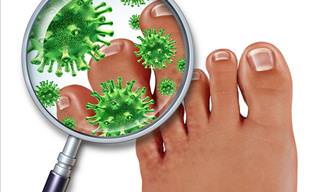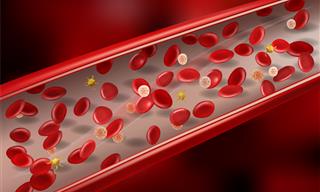A recent study published in Nature estimated that about 87% of the infections of Wuhan, China in the early days of the pandemic were missed because health officials were not aware of asymptomatic or presymptomatic (when a person is infected but takes days or even weeks to start showing symptoms) spread.
One of the characteristics of Covid-19 which played a major role in the outbreak growing into a pandemic is the disturbing fact that we simply don’t know who among us is spreading it. Experts are now aware that a large part of Covid-19 carriers, nearly half of all cases, are not showing any symptoms at all. The problem is that even those who are asymptomatic or pre-symptomatic have the potential to infect others with the virus and influence the future of the pandemic.
 Researchers are racing to understand the biology of these sneaky cases, in order to develop models to predict how they might be spreading Covid-19 and know what safety measures should be taken. While many questions regarding asymptomatic transmission remain open, we have collected a few recent insights from health experts in order to paint a clearer picture of the topic.
Researchers are racing to understand the biology of these sneaky cases, in order to develop models to predict how they might be spreading Covid-19 and know what safety measures should be taken. While many questions regarding asymptomatic transmission remain open, we have collected a few recent insights from health experts in order to paint a clearer picture of the topic. Related: This Is How a COVID-19 Infection Progresses Step by Step
The exact figures are hard to measure
The biggest challenge in studying symptom-free transmission is figuring out how often it happens. A study conducted in a small Italian town in June revealed that about 40% of infected people who were tested for Covid-19 showed zero symptoms. A similar study was done in Boston in an inn catering to homeless people. Interestingly, all 146 individuals who tested positive didn’t have symptoms.
Furthermore, contact tracing efforts suggest that about half of the patients diagnosed with Covid-19 had not come in contact with someone who was confirmed to be positive for the virus, which means there is a good chance people are getting infected from those who exhibit no symptoms.

Overall, the CDC currently estimates that about 40% of cases in the United States are of asymptomatic individuals. That said, doctors stress that it's very difficult to determine the exact numbers when it comes to asymptomatic carriers. Those can be estimated via studies but these statistics hardly measure the reality of the entire population.
How infectious are asymptomatic carriers?
There are a few different viewpoints when it comes to how much asymptomatic carriers can spread the virus. One recent study from South Korea found that symptomatic and asymptomatic patients seem to carry a similar viral load in their bodies, which is the amount of virus located in people’s throats and noses. Does that mean asymptomatic people spread the coronavirus just as readily as those with symptoms?
Maybe, but not necessarily. According to Manisha Juthani, a Yale Medicine infectious disease specialist, the viral material found in asymptomatic patients could be dead viral pieces that have not yet cleared from the body, which means they are not infectious at all.

Furthermore, coughing and sneezing are thought to be the most prevalent ways in which coronavirus particles are transmitted. Theoretically, an infected person with symptoms is far more likely to expel respiratory droplets through coughing or sneezing. Some experts, however, claim that talking could transmit the virus just as easily. “Coughing can potentially release larger and more numerous clouds of droplets, but we now know that simply talking produces thousands of droplets,” explained virologist Benjamin Neuman.
It’s important to note that asymptomatic carriers may not take as many precautions as those who are obviously sick, meaning they might leave their homes, visit crowded places and not always wear a mask. The CDC estimates asymptomatic cases are 75% as infectious as symptomatic ones, but the agency itself cautions this assumption is based on the information given above, which is dynamic.
Related: COVID-19 News: The Virus Can Linger in the Air For Hours
Why some infected people don't develop symptoms
One theory for the reason some people are asymptomatic is that their immune systems were boosted by childhood vaccinations, such as pneumonia and polio vaccines. Another belief is that these people have developed a degree of immunity after being infected with another type of coronavirus, like the common cold. “This memory seems to provide some protection to the novel coronavirus as well,” Juthani said.

Asymptomatic carriers include individuals of all ages. Recent data points out that kids play a big role in the silent transmission of Covid-19, as they tend to have mild to no symptoms at all, and their infection often goes unnoticed. Despite the fact that older adults are more susceptible to severe cases of Covid-19, a large portion of that population can be asymptomatic as well, as it appears from a few studies conducted in nursing homes this summer.
Asymptomatic Covid-19 can cause lasting damage
Past studies of infected animals show that even when there are no symptoms of a disease, there is still cell damage that is later identified in biopsies. In asymptomatic individuals, there is a risk that the infection might still lead to internal inflammation that can cause heart damage in some people. This underlying inflammation can trigger complications such as heart arrhythmia, heart failure, and cardiac arrest. To learn more about the connection between Covid-19 and cardiovascular health check out our previous article titled The Cardiac Dangers of Covid-19.
In conclusion, while the prospect of going through Covid-19 without any symptoms and developing immunity might seem positive, there is still much we don’t know about asymptomatic transmission, and the best we can do to stay safe is abiding by all the precaution we can.
If you found this article helpful, please pass it on and share it
 Go to BabaMail
Go to BabaMail




























